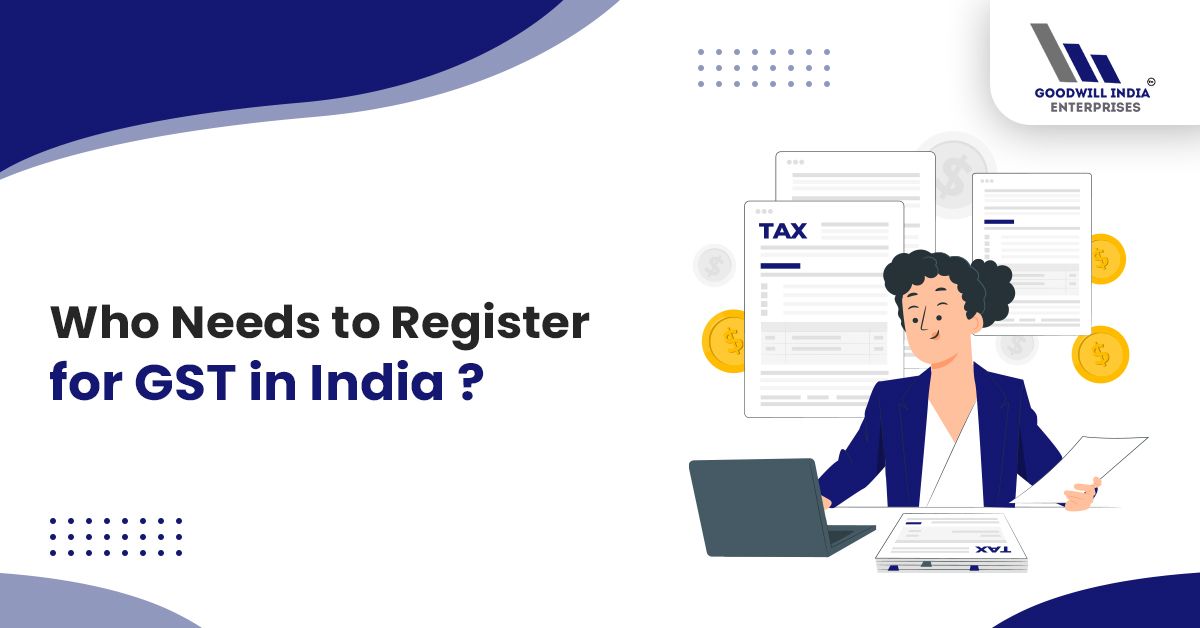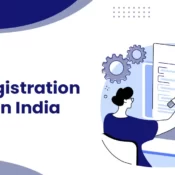
Who Needs to Register for GST in India?
Goods and Services Tax (GST) in India marked a significant turning point in the country's taxation landscape. GST is a value-added tax levied on the supply of goods and services, designed to replace a complex web of indirect taxes. Since its implementation, businesses and individuals alike have had questions about who needs to register for GST. We will explore the GST registration process, documents required, and essential information about this revolutionary tax system.
What is GST?
GST, or Goods and Services Tax, is a single tax that subsumes various indirect taxes like central excise duty, service tax, value-added tax (VAT), and others. GST is designed to simplify taxation, eliminate the cascading effect of taxes, and create a unified market across the country.GST Registration Procedure
Now, let's delve into the GST registration procedure. While the registration process is relatively straightforward, it is essential to know the rules and requirements. Here are the key steps,- Determine Eligibility - The first step is to understand whether you are eligible for GST registration. As of the latest update, businesses with an annual turnover of over INR 20 lakhs (INR 10 lakhs for special category states) are required to register under GST.
- Prepare Required Documents - You will need to gather essential documents, including proof of identity, address, and bank account details of the business owner or partners.
- GST Registration Online - The process is primarily online. You can visit the official GST portal and initiate the registration process.
- Fill the Application Form - You will need to fill the GST REG-01 application form with accurate information about your business.
- Submit Documents - Upload the required documents, including photographs and digital signatures.
- Verification - Your application will be verified by the GST authorities.
- Wait for Approval - After successful verification, you will receive an Application Reference Number (ARN). The GST authorities will process your application, and upon approval, you will receive the GST certificate.
- GSTIN (GST Identification Number) - Once approved, you will receive a unique 15-digit GSTIN number for all GST-related transactions.
Documents Required for GST Registration
- Proof of identity, such as a PAN card, Aadhar card, or passport of the business owner or partners.
- Proof of address, such as a utility bill, rent agreement, or property document.
- Passport-sized photos of the owner or partners.
- Bank account details of the business, including a canceled cheque or bank statement.
- Business registration documents, like the partnership deed, certificate of incorporation, or registration certificate.
When Was GST Introduced in India?
GST was instigated in India on July 1, 2017. This historic tax reform replaced a convoluted tax structure with a single, unified tax. The introduction of GST aimed to streamline the taxation system, reduce tax evasion, and promote a more straightforward and efficient business environment.GST Customer Care Number in Chennai
For those in Chennai or anywhere in India, having access to GST customer care is essential. The GST helpdesk can provide assistance with registration, filing returns, and addressing any GST-related queries. The GST customer care number in Chennai and across India is 1800 103 4786. This toll-free number is available for all GST-related inquiries.Who Needs to Register for GST?
As mentioned earlier, businesses with an annual turnover exceeding INR 20 lakhs (or INR 10 lakhs for special category states) are required to register for GST. However, there are certain exceptions and categories that must register for GST regardless of their turnover.- Inter-State Sellers - Any business selling goods or services across state borders is required to register for GST, regardless of turnover.
- Casual Taxable Persons - Individuals or businesses supplying taxable goods or services occasionally must register for GST before starting their operations.
- Non-Resident Taxable Persons - Non-residents involved in taxable supply in India must register for GST.
- E-commerce Operators - Online marketplaces, such as Amazon and Flipkart, are obligated to collect and deposit GST, and therefore, must register for GST.
- Input Service Distributor - Businesses that distribute input tax credit to other locations of the same business must also register for GST.
- Aggregator - Businesses involved in aggregating services provided by other suppliers through an online platform are also required to register for GST.




